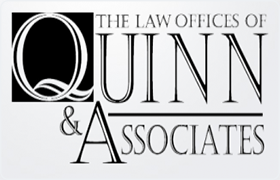Belleville Criminal Lawyer, Michigan
Sponsored Law Firm
-
 x
x

Click For More Info:
-
Quinn and Associates
719 Griswold, Suite 820 Detroit, MI 48226 » view mapWayne County Criminal Law Win with Attorney Quinn!
We are dedicated to each case. We understand that every case is different and will always take the time to offer solutions that will put you in the winner’s circle.
800-661-1940  Christopher Quinn Esq.
Christopher Quinn Esq.Attorney At Law - MI
Detroit Mercy School of Law, J.D. - 2000
 About
AboutClick here to lean more about Mr. Quinn
 Contact UsEmail or Call 24/7
Contact UsEmail or Call 24/7Enter more text from site here
Thomas S. Piotrowski
✓ VERIFIEDCriminal, Estate, Felony, White Collar Crime, Misdemeanor
Thomas Piotrowski is an experienced and aggressive litigator who handles cases in and around the Detroit metro area. Since graduating cum laude from t... (more)
Darin Kurt Weinberg
Divorce & Family Law, Criminal, Bankruptcy, Accident & Injury
Status: In Good Standing
FREE CONSULTATION
CONTACTWilliam Maze
Traffic, Domestic Violence & Neglect, White Collar Crime, DUI-DWI
Status: In Good Standing
Murray A. Duncan
Family Law, Divorce & Family Law, Criminal, Bankruptcy & Debt
Status: In Good Standing Licensed: 40 Years
Robert Keyes
Bankruptcy & Debt, Credit & Debt, Bankruptcy, Criminal, Traffic
Status: In Good Standing Licensed: 19 Years
FREE CONSULTATION
CONTACTKristina Sheree Nunn
Dispute Resolution, Lawsuit & Dispute, Labor Law, Criminal
Status: In Good Standing Licensed: 17 Years
George E. Long
Landlord-Tenant, Family Law, Juvenile Law, Criminal, Insurance
Status: In Good Standing Licensed: 9 Years
Kirk W. Tabbey
Biotechnology, Criminal, Insurance, Household Mold
Status: In Good Standing Licensed: 43 Years


 Christopher Quinn Esq.
Christopher Quinn Esq. About
About Contact UsEmail or Call 24/7
Contact UsEmail or Call 24/7

